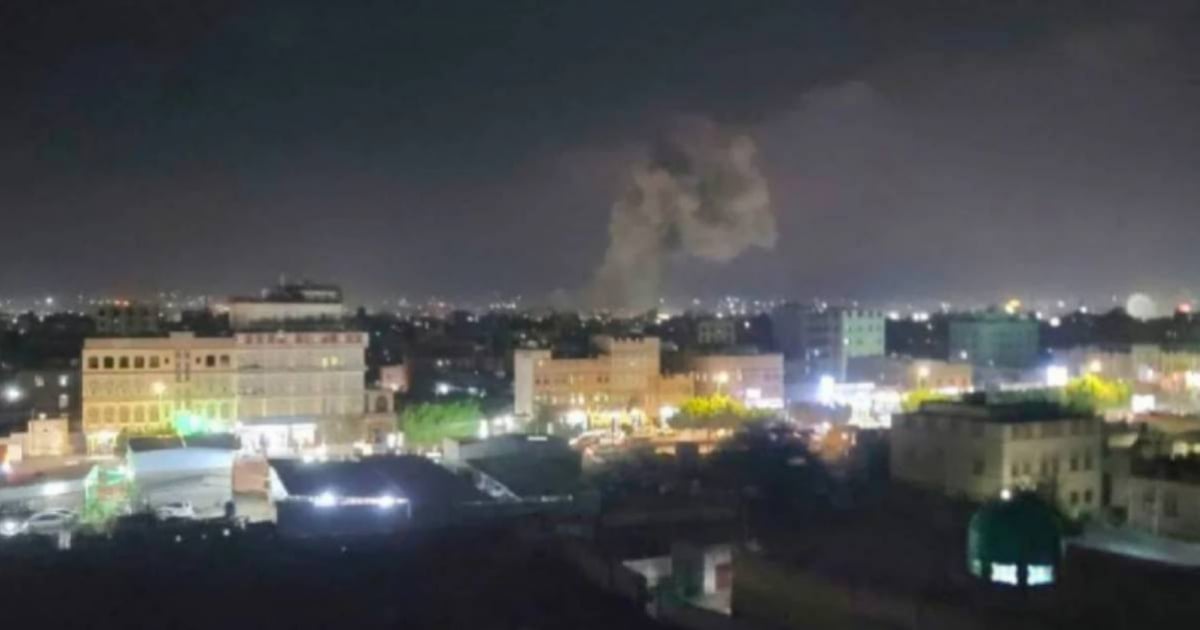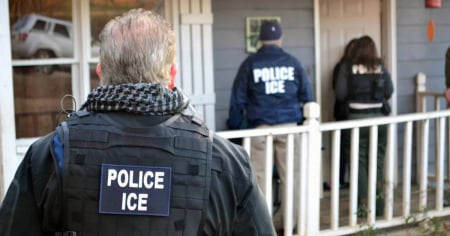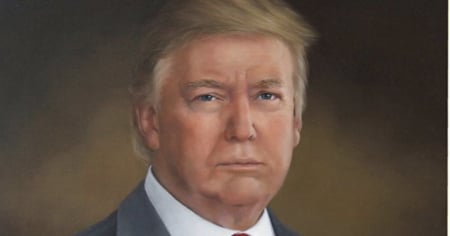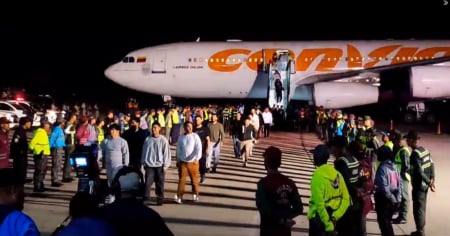
Related videos:
The Donald Trump administration made an unusual mistake by accidentally including a journalist in a private messaging group where senior officials were discussing military plans against the Houthi rebels in Yemen.
The leak has caused a stir in Washington and prompted an internal investigation, despite the White House's efforts to downplay the matter.
Jeffrey Goldberg, editor-in-chief of The Atlantic, revealed this Monday in an article titled "The Trump Administration Accidentally Messaged Me Their War Plans" that he was added to a chat on the Signal app in early March.
The account that included it had the name of the White House security advisor, Mike Waltz.
The messaging group was made up of key figures from the administration, such as Vice President JD Vance, Secretary of Defense Pete Hegseth, Secretary of State Marco Rubio, and Director of National Intelligence Tulsi Gabbard.
The conversation discussed strategic details of attacks against the Houthis, including timings and types of weaponry to be used, according to the reporter's account.
The spokesperson for the White House National Security Council, Brian Hughes, acknowledged that the messages appeared "authentic" and stated that the government was investigating how an unauthorized number was included in the conversation.
For his part, Secretary of Defense Pete Hegseth denied that the Trump administration had discussed military plans in a private chat. “No one was sending messages about war plans, and that’s all I have to say,” he stated from Hawaii, where he is attending meetings with leaders of the Indo-Pacific Command.
Similarly, the White House press secretary, Karoline Leavitt, accused Goldberg of being a sensationalist and stated that everything has been an exaggeration on his part.
"'War plans' were not discussed. No classified material was sent during the conversation. The White House Counsel's Office has provided guidance on various platforms for President Trump's senior officials to communicate in the safest and most efficient manner possible," said the spokesperson.
"As the National Security Council stated, the White House is investigating how the number for Goldberg was inadvertently added to the conversation," he said, emphasizing that "the attacks against the Houthis were successful and effective. Terrorists were eliminated, and that is what matters most to President Trump."
Former President Donald Trump stated that he was unaware of the article from The Atlantic and downplayed the publication. “I know nothing about it. I'm not a big fan of The Atlantic. I think it's a magazine that is going to disappear,” he declared to the press.
According to Goldberg, the messaging group not only served to coordinate the offensive in Yemen but also acted as a space for discussion on the strategy to be followed.
Vice President JD Vance expressed his concern in the chat about the economic consequences of the operation, warning that it could raise oil prices and generate backlash among public opinion.
In response, Secretary of Defense Pete Hegseth stated that the narrative should focus on two key points: blaming Joe Biden for the failure in the region and highlighting Iran's funding to the Houthis.
Goldberg recounted that he initially doubted the authenticity of the group, but confirmed that the plans were real when, on March 15, there were explosions reported in Sana'a, the capital of Yemen, at the same time discussed in the chat.
Realizing the magnitude of the mistake, the journalist decided to leave the group, inadvertently notifying the other members of his presence in the conversation.
The incident has sparked a political storm in Washington and has raised doubts about the security of communications within the Trump administration.
Frequently Asked Questions about the White House Leaked Chat Scandal
What happened with the leaked chat from the White House?
The Donald Trump administration made a mistake by accidentally including a journalist in a private messaging group where military plans against the Houthi rebels in Yemen were being discussed. The leak has caused a stir in Washington and has prompted an internal investigation.
Who is Pete Hegseth and why is he relevant in this context?
Pete Hegseth is the Secretary of Defense of the United States recently confirmed amidst accusations and controversy. He has been a key figure in the Trump administration and part of the group that discussed strategies in Yemen, which makes him relevant in the context of the chat leak.
What has the White House said about the chat leak?
The White House has tried to downplay the matter by stating that no war plans were discussed nor was classified material sent. However, it has acknowledged the authenticity of the messages and is investigating how an unauthorized number was included in the conversation.
What consequences could this incident have for the Trump administration?
The incident has sparked a political storm in Washington and has raised concerns about the security of communications within the Trump administration. It could have repercussions on public trust and generate internal tensions within the administration.
Filed under:






